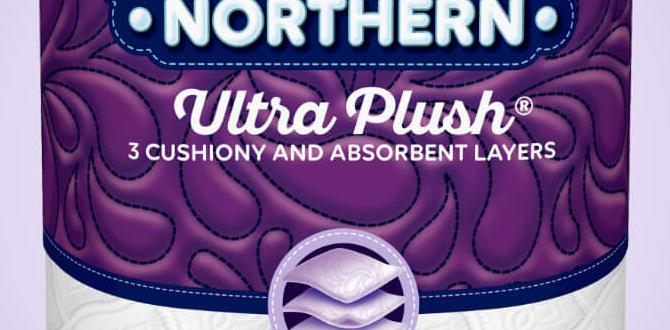As more and more people become conscious about their health and the environment, the interest in organic gardening is also rising. Organic growing techniques and products are becoming increasingly popular among garden enthusiasts.
Miracle-Gro is one of the most popular products in the market today for plant growth and fertilization. This product has been around for decades and has helped gardeners achieve lush, green gardens. With so many definitions of organic, knowing what to look for when purchasing products for your garden can be confusing. Is Miracle Gro organic?
We will look closer at Miracle-Gro and whether it meets the requirements to be considered an organic product. We will also explore the different types of organic products available in the market and give you the information you need to make an informed decision about your gardening practices.
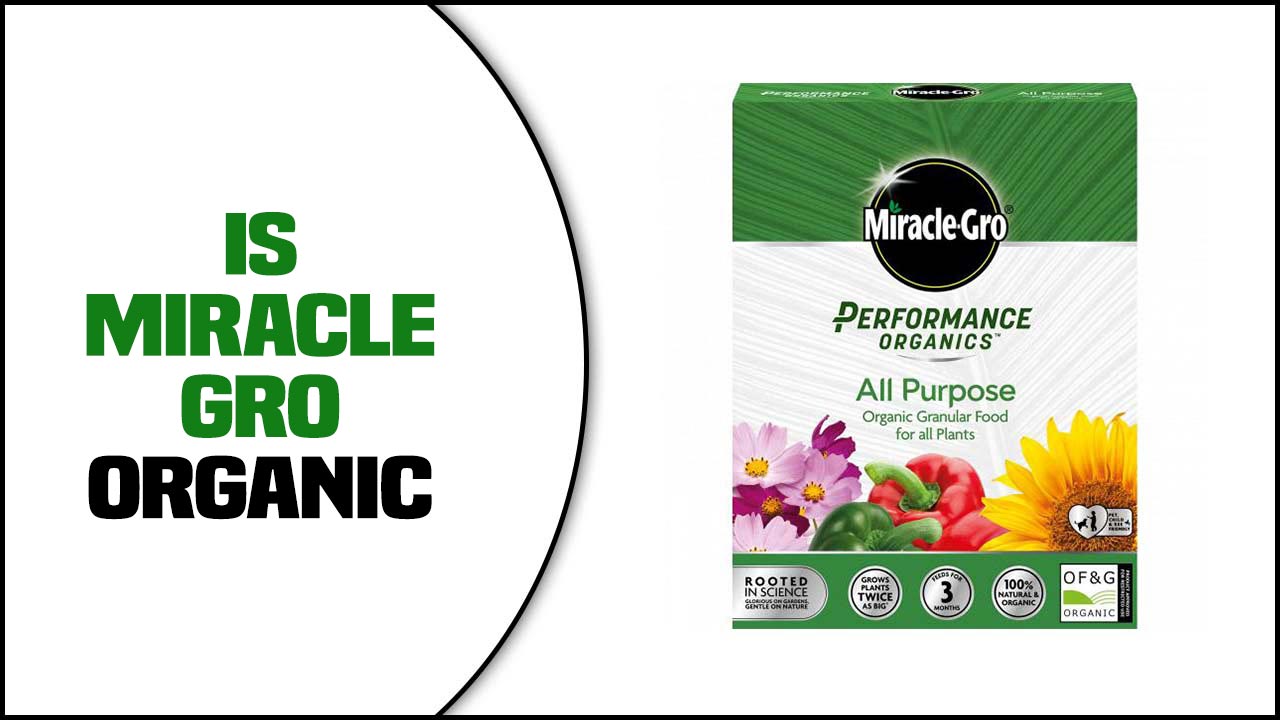
Is Miracle Gro Organic? Unveiling The Truth
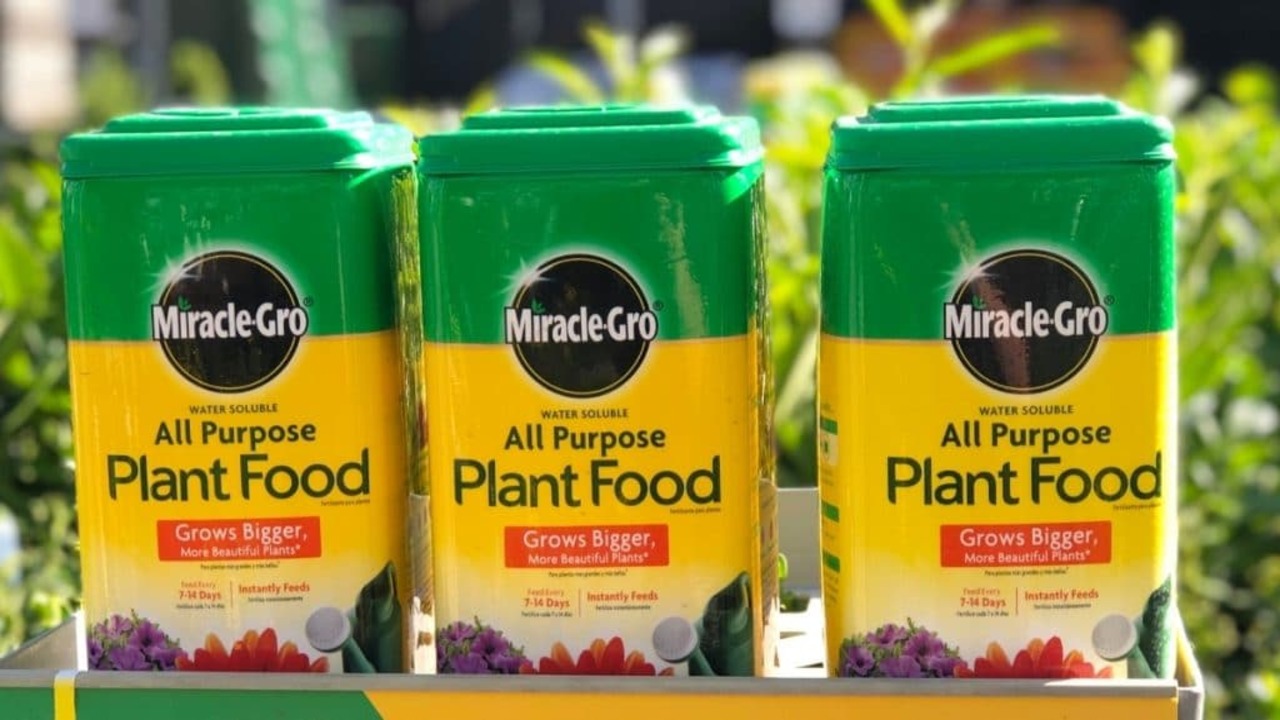
Is miracle gro organic? The truth about whether Miracle-Gro is organic or not may surprise you. While Miracle-Gro does offer a line of products labeled as organic, not all of its products meet the criteria for organic certification. The key to understanding this is the ingredients handy in their various formulations.
Some Miracle-Gro products contain synthetic chemicals and fertilizers, which do not meet the standards for organic gardening. However, they also offer a range of organic options made with natural ingredients and approved for use in organic gardening. So, if you’re looking for an organic option, read the product labels carefully and choose the ones certified as organic to ensure that your plants get the natural nourishment they need.
Understanding Synthetic Fertilizers
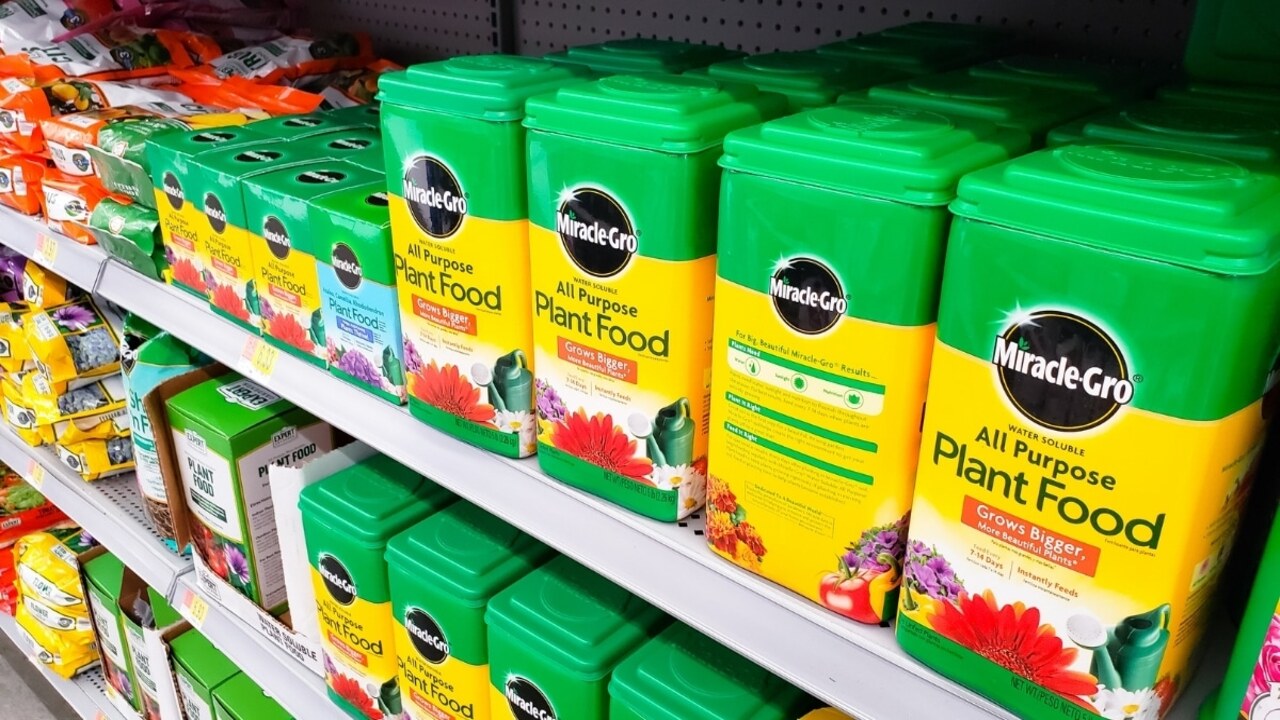
People do not consider Miracle-Gro to be an organic fertilizer. Chemical companies make synthetic fertilizers like Miracle-Gro from chemical compounds. These fertilizers provide nutrients to plants quickly and efficiently. However, synthetic fertilizers can have negative environmental impacts if not used properly.
Organic fertilizers, made from natural materials, promote long-term soil health. By using organic solutions in your gardening practices, you can avoid the runoff of synthetic fertilizers into water systems, which can lead to algae blooms and other pollutants.
The Impact Of Synthetic Fertilizers On The Environment
Synthetic fertilizers can have a detrimental impact on the environment. They can contribute to water pollution through runoff and leaching, leading to eutrophication in water bodies. The production of synthetic fertilizers requires large amounts of energy and results in greenhouse gas emissions.
Additionally, overuse of these fertilizers can deplete soil nutrients and disrupt ecosystems’ natural balance. To minimize these negative effects, choosing organic or natural alternatives is advisable. By opting for organic gardening practices and using organic fertilizers, gardeners can help reduce the environmental impact of fertilizers.
The Process: How Miracle-Gro Is Produced?

Miracle-Gro is a popular brand of fertilizers and plant food that is widely handy by gardeners and plant enthusiasts. However, we should note that Miracle-Gro does not meet the requirements to be considered organic. Miracle-Gro uses synthetic chemicals and nutrients to promote plant growth and health during its production process.
We carefully formulate these chemicals to provide the necessary plant nutrients but do not derive them from natural sources. While Miracle-Gro can be effective in helping plants thrive, it is not certified organic and may not meet the standards for organic gardening practices. If you are looking for an organic alternative, many other fertilizers and plant food brands are made from natural ingredients and meet organic standards.
Does The Production Process Impact Its Organic Status?
The production process of Miracle-Gro can impact its organic status. While some of Miracle-Gro’s products are labeled as “organic,” it is important to note that not all of their products meet the strict standards of organic certification organizations. Miracle-Gro uses organic and synthetic ingredients in their fertilizers and plant food.
Which may disqualify them from being considered 100% organic. Additionally, the production process itself, including the sourcing and processing of ingredients, can also affect the organic status of a product. One should always read the labels and do thorough research to determine carefully. If a product meets your personal definition of “organic.”
Examining The Ingredients Of Miracle-Gro
To understand the definition of “organic” in gardening and agricultural practices, it is important to analyze the ingredients list on Miracle-Gro packaging to determine if they are organic. While Miracle-Gro may offer potential benefits in terms of plant growth and performance, it’s essential to consider the drawbacks associated with using synthetic fertilizer.
For those looking to practice organic gardening, alternative options such as compost and organic fertilizers provide nutrients while promoting soil health. It is also crucial to consider the environmental impact of using Miracle-Gro and similar products, as synthetic fertilizers can contribute to water system contamination and the proliferation of algae blooms.
Chemical Components Vs Natural Elements

Miracle-Gro incorporates chemical components that promote targeted and swift nutrient delivery to plants. These components carefully blend to optimize plant development and vitality, acting as a catalyst for growth. Additionally, Miracle-Gro harnesses the power of natural elements like compost and bone meal, which effectively enhance soil health and fertility.
These organic materials enrich the soil in the long run and contribute to its sustainability. Combining chemical components with natural elements, Miracle-Gro ensures a comprehensive approach to plant nutrition and gardening success.
Alternatives To Miracle-Gro For Organic Gardening
Many alternatives are available for organic gardening, despite Miracle-Gro not being considered organic due to synthetic chemicals. Compost, organic fertilizers, and natural pest control are all viable options.
Organic gardening promotes soil health and biodiversity, making it better for the environment and your overall health. Additionally, you can access numerous resources to start organic gardening. These organic alternatives allow you to create a thriving garden without using synthetic fertilizers or pesticides.
Benefits Of Using Compost As Fertilizer
Using compost as fertilizer offers a range of benefits for gardeners and the environment. Compost is rich in organic matter, which helps improve soil structure and drainage, making it easier for plants to access nutrients and water. Additionally, compost provides a slow-release source of nutrients, feeding plants gradually over time and reducing the risk of nutrient runoff into waterways.
Compost also helps suppress weeds, conserves soil moisture, and promotes beneficial microbial activity. Furthermore, using compost as fertilizer is an environmentally friendly practice, as it reduces the need for chemical fertilizers and helps divert organic waste from landfills. Incorporating compost into your gardening routine can enhance plant health and sustainability.
Is It Safe To Use Miracle-Gro In Your Organic Garden?
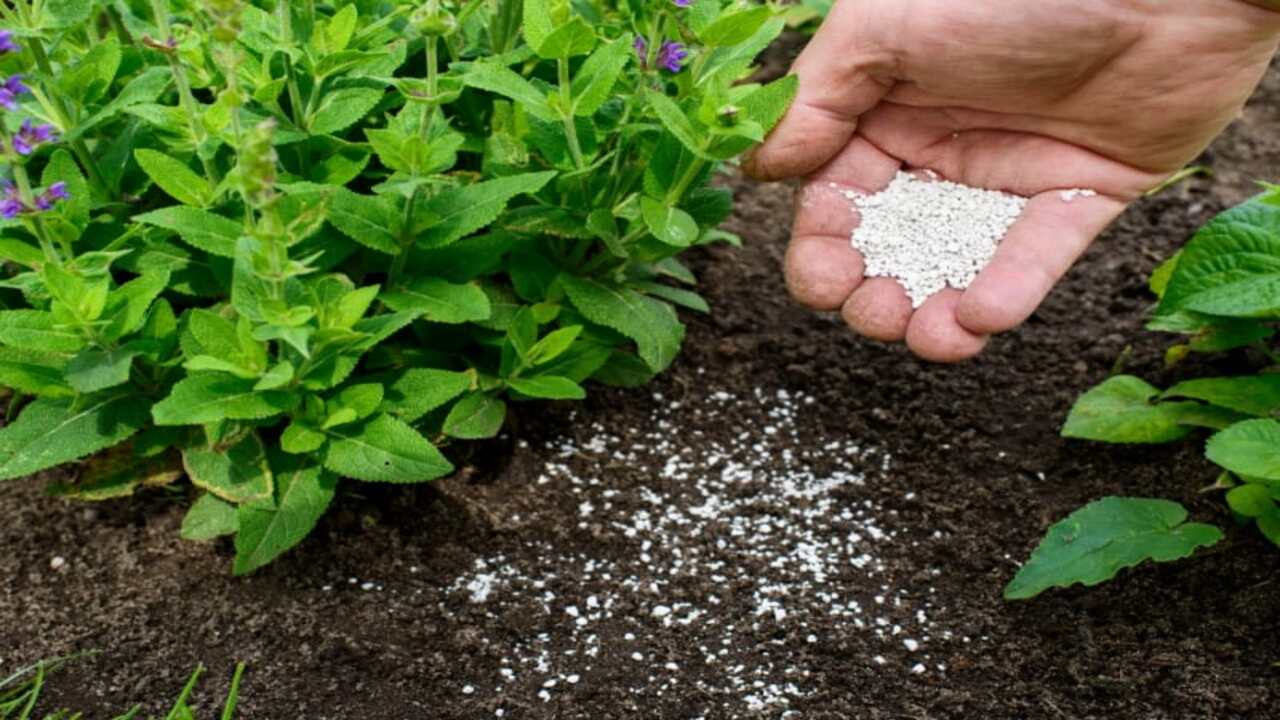
Many wonder if using Miracle-Gro in their organic garden is safe. While Miracle-Gro is a widely recognized and trusted brand, it is important to note that not all of its products are considered organic. Some Miracle-Gro products contain synthetic chemicals and additives that may not meet the standards for organic gardening.
If you are specifically looking for organic options, it is best to look for certified organic products from reputable organizations, such as the USDA Organic Seal. These products are made with natural and plant-based ingredients and do not contain synthetic chemicals or genetically modified organisms (GMOs).
However, if you are not strictly adhering to organic gardening practices, using Miracle-Gro products can still effectively provide essential nutrients to your plants. Reading product labels and research to ensure that your products align with your gardening goals and preferences is always a good idea.
Conclusion
Miracle-Gro is not considered organic. It is a synthetic fertilizer produced using chemical components rather than natural elements. While it may be effective in promoting plant growth, its production process and ingredients do not align with the principles of organic gardening. If you want to maintain an organic garden, alternative options are available such as using compost as a natural fertilizer.
These alternatives provide nutrients to your plants and have additional environmental benefits. So, if you’re aiming for an organic garden, exploring organic fertilizers that align with your gardening practices and values is best. We hope now you know Is miracle Gro Organic.
Frequently Asked Questions
[rank_math_rich_snippet id=”s-1573b2b6-a52f-467c-a331-a59c56aa6fb4″]

I am passionate about home engineering. I specialize in designing, installing, and maintaining heating, ventilation, and air conditioning systems. My goal is to help people stay comfortable in their homes all year long.







